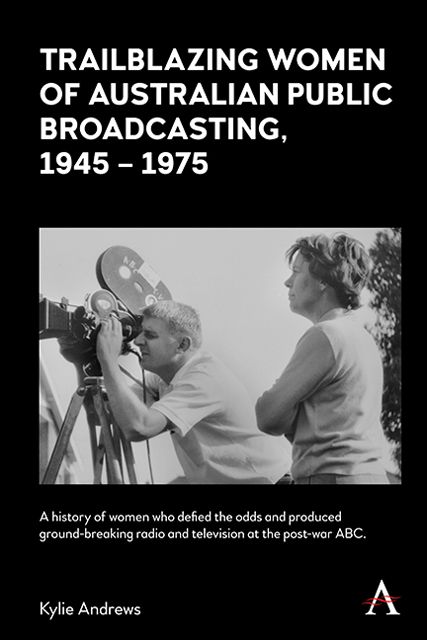Book contents
- Frontmatter
- Dedication
- Contents
- List of Figures
- List of Abbreviations
- Preface
- 1 Introduction
- 2 Career Snapshots
- 3 Welcome to the ABC, Ladies
- 4 The New Nation-Builders
- 5 Talent Was Not Enough
- 6 Thinking Outside the Box
- 7 Timely Escapes and Bittersweet Homecomings
- 8 International Adventures and Global Networking
- 9 Farewell to the ABC
- 10 Epilogue
- Reference List
- Index
5 - Talent Was Not Enough
Published online by Cambridge University Press: 09 December 2022
- Frontmatter
- Dedication
- Contents
- List of Figures
- List of Abbreviations
- Preface
- 1 Introduction
- 2 Career Snapshots
- 3 Welcome to the ABC, Ladies
- 4 The New Nation-Builders
- 5 Talent Was Not Enough
- 6 Thinking Outside the Box
- 7 Timely Escapes and Bittersweet Homecomings
- 8 International Adventures and Global Networking
- 9 Farewell to the ABC
- 10 Epilogue
- Reference List
- Index
Summary
In addition to being ‘built’ to pursue active public lives, Kay Kinane, Catherine King, Therése Denny and Joyce Belfrage instigated a range of industrial strategies to help them infiltrate domains forbidden to them. They needed to battle the tropes that insisted women had little aptitude for political and economic discourse, had no ability to understand technical methods, and were incapable of wielding authority. They initially strengthened their status by enacting local diplomacies and industry mentorships; they sought out ABC gatekeepers, men who appreciated that women could contribute to the national debate. The cohort also found ways to unleash their technical prowess, surprising male co-workers with their innovative programming. They filled the gaps created in moments of transition; positions which, if they were lucky, were overlooked long enough for them to establish key skills and assert ownership over their productions. They also took risks as technologies evolved, tackling experimental production methods while their male peers were less willing to sacrifice their safe, established positions. Not all, however, were so successful with these strategies. Joyce Belfrage was caught up in a chaotic industrial process that hindered her ability to do the job; her authority was destabilised and male producers advanced at the expense of her own professional well-being.
ABC Mentors and Gatekeepers
One factor that was essential to the success of female producers in the postwar years was their ability to forge productive working relationships with senior ABC decision-makers. The ABC's rejection of Irene Greenwood demonstrated the need for trust between producers and management; ambitious women would otherwise find themselves isolated and unable to advance into key producing roles. Kay, Catherine and Therése received advice and importantly, support, from high-ranking male mentors. Having an advisor to provide insight was useful, but it was more beneficial to have an advocate, a senior ABC officer who encouraged producers to show initiative and put them forward for new projects.
Through the late 1940s, Therése Denny had been increasingly discouraged by the constant cycle of rejections to her applications for producing roles at the ABC. She had worked casually for both the public broadcaster and commercial stations, and longed to work as a producer, but at best had only managed to get freelance work contributing to dramatized radio talks.
- Type
- Chapter
- Information
- Publisher: Anthem PressPrint publication year: 2022

